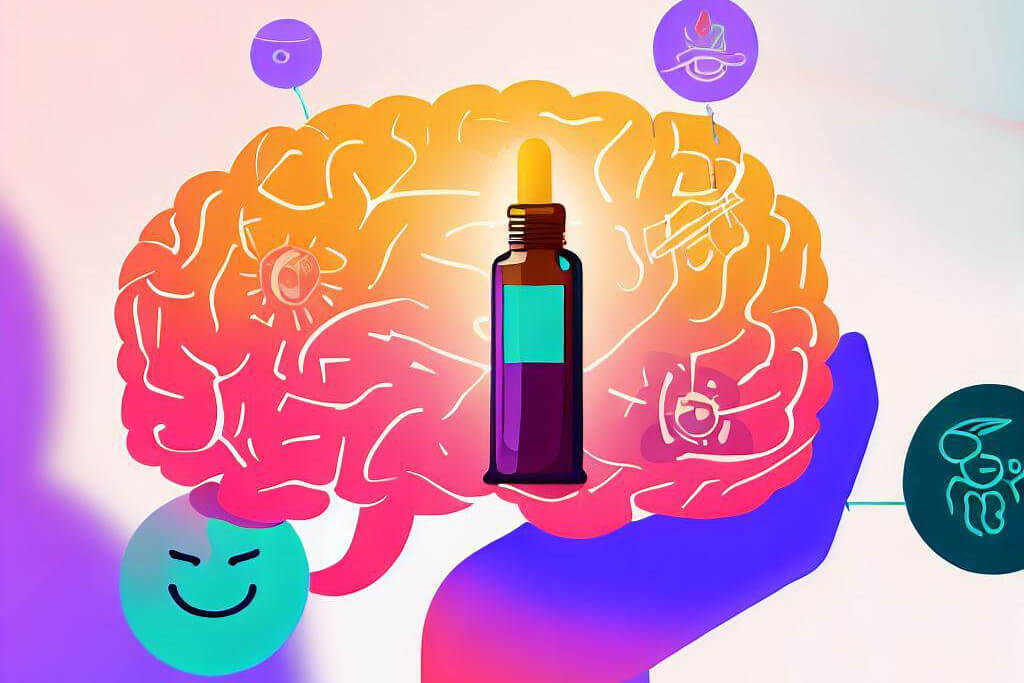Disclaimer: The anecdotal benefits of CBD mentioned on this website are based on preliminary research and individual user experiences. All information presented here is not meant to substitute for or replace information from health care practitioners. Please click here for our full disclaimer, including side effects, FTC position, etc.

The use of cannabidiol (CBD) has been gaining popularity in recent years due to its potential therapeutic benefits. CBD is a non-psychoactive compound found in the cannabis plant that has been shown to have anti-inflammatory, antioxidant, and neuroprotective properties. One area where CBD may be particularly useful is in the treatment of neuropsychiatric disorders.
Neuropsychiatric disorders are a group of mental illnesses that affect the brain and nervous system. These disorders can cause a wide range of symptoms, including anxiety, depression, psychosis, and cognitive impairment. While there are many different types of neuropsychiatric disorders, they all share a common underlying cause: an imbalance in the brain’s neurotransmitter systems.
Disorders & Treatments
The current treatments for neuropsychiatric disorders are often ineffective and come with a range of side effects. For example, antidepressants can take weeks to start working and may cause weight gain, sexual dysfunction, and other side effects. Antipsychotic medications can cause movement disorders, weight gain, and other problems. As a result, there is a need for new and more effective treatments for these disorders.
CBD may be a promising treatment option for neuropsychiatric disorders because of its ability to interact with the body’s endocannabinoid system. The endocannabinoid system is a complex network of receptors and signaling molecules that helps regulate many physiological processes, including mood, sleep, and appetite. CBD has been shown to interact with these receptors and signaling molecules, which may help restore balance to the system and alleviate symptoms of neuropsychiatric disorders.
Anxiety
Anxiety is one of the most common neuropsychiatric disorders, affecting millions of people worldwide. Studies have shown that CBD may be an effective treatment for anxiety. In a 2019 study, researchers found that CBD significantly reduced anxiety in participants with social anxiety disorder. Another study found that CBD reduced anxiety in patients with post-traumatic stress disorder (PTSD). CBD may also be useful for other types of anxiety disorders, such as generalized anxiety disorder (GAD) and panic disorder.
Depression
Depression is another common neuropsychiatric disorder that can be difficult to treat. While antidepressants are often used to treat depression, they can take weeks to start working and may not be effective for everyone. CBD may be a more effective treatment option for depression. In a 2019 study, researchers found that CBD had antidepressant-like effects in mice.
Another study found that CBD reduced depressive symptoms in patients with treatment-resistant depression. CBD may work by increasing levels of serotonin, a neurotransmitter that is often low in people with depression.
Schizophrenia
Schizophrenia is a severe neuropsychiatric disorder that affects about 1% of the population. People with schizophrenia may experience hallucinations, delusions, and disordered thinking. While antipsychotic medications are often used to treat schizophrenia, they can cause significant side effects. CBD may be a more tolerable treatment option for schizophrenia. In a 2018 study, researchers found that CBD improved cognitive function in patients with schizophrenia. Another study found that CBD reduced the severity of psychotic symptoms in patients with schizophrenia.
More Research Required
Overall, CBD shows promise as a treatment option for neuropsychiatric disorders such as anxiety, depression, and schizophrenia. However, more research is needed to fully understand its potential benefits and risks. While CBD is generally considered safe, it can cause side effects such as fatigue, diarrhea, and changes in appetite.
While more research is needed, CBD may offer a more effective and tolerable treatment option for these disorders compared to current treatments.